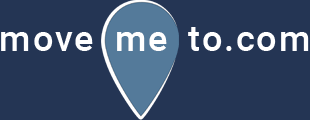
Buying your first house is an exciting prospect. Who doesn't love the idea of having a non-rented space they can truly call their own? That said, jumping the gun and buying homes before you are ready can have some serious consequences.
That is why it's crucial to be honest with yourself about your finances and life circumstances in general before starting this process. If you are not sure that you are ready to buy your first home, we encourage you to ask yourself these 6 questions.
How is your Credit Score?
If your credit score is too low for a loan, home-ownership may not be an option for you right now. We recommend checking your credit score through your bank or using a free and legitimate website like Credit Karma. If your score is on the higher end, you will be eligible for a house loan with a reasonable interest rate and lower monthly payments.
If you have a lower credit score, you may want to focus on building your credit back up. Otherwise, you could be ineligible for a loan or be given a loan with a high interest rate. For reference, a score of 700 is considered good credit for a house loan. This is a good goal to set if your score is currently in the 600s or lower.
Can you Save for a Down Payment?
How much do you think you can realistically save for a down payment within your current timeline? Not sure how much a down payment is in the first place? The amount will vary from home to home, but you ideally want to put down about 20% of the asking price.
So, if you are looking at homes for sale in the $250,000 range, you will need to save up a down payment of approximately $50,000. That works out to over $4,000 a month for a year. Waiting until you have saved this much is a popular home buying tip, as you otherwise might have to pay for private mortgage insurance.
What's your Work Situation?
If you have an unstable work situation, taking on a mortgage loan could be risky. It is wise to wait until you have stable employment before committing to monthly mortgage payments.
Do you Have Any Savings?
You don't want to be putting ALL of your money into your down payment. You should also have savings and an emergency fund. This will prepare you for the inevitable added costs of buying and maintaining a home. If your monthly mortgage payments take up more than 30% of your gross annual income, you should be getting yourself into a stressful financial situation.
Do you have Big Incoming Expenses?
Are you simultaneously saving for a wedding or a big upcoming trip? Your future expenses should be taken into consideration when budgeting for your down payment and monthly mortgage expenses. If you have big expenses coming up, that will influence how much you can realistically spend on a house.
Are you Prepared to Maintain a House?
Living in a house, particularly one that you own, is much different than living with your parents or renting somewhere. You will not have a landlord to contact when a pipe bursts or the roof starts to leak. You will need to learn how to do these things yourself or how to get in touch with the right people for assistance. You will also need to be prepared for the expenses that come with home repairs.
Ready to Buy? Don't Do It Alone!
Decided that you are ready to buy your first home? Congrats! We strongly recommend that your start with contacting a local real estate agent. One that will help you find the best homes for sale that fit within your budget. A professional REALTOR® can also take care of all the paperwork and easy-to-forget details. Plus, they can use their negotiating skills to get you the best possible deal on that first house.
